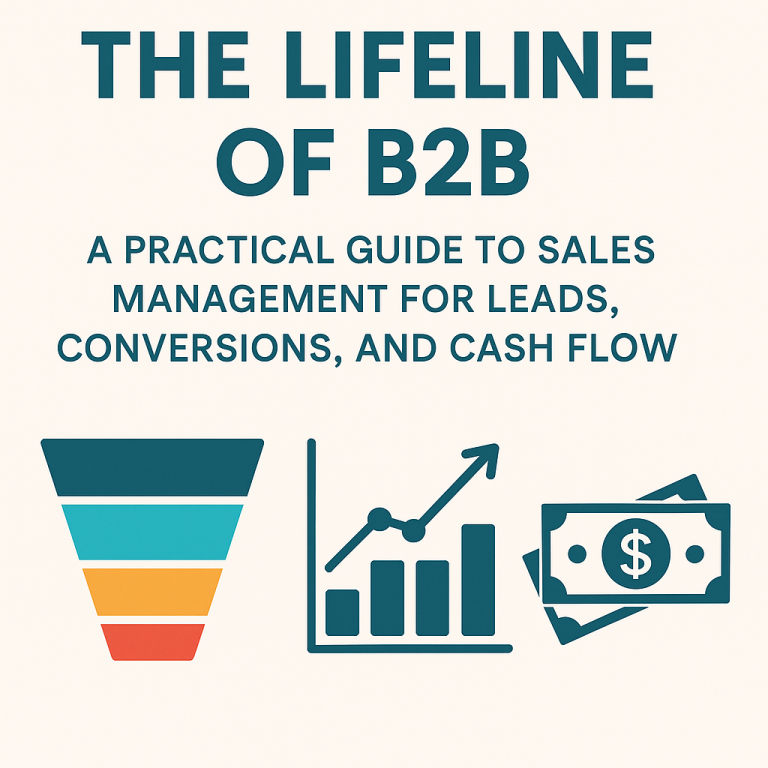In the journey of self-growth, many sales professionals form their views on sales based on personal experiences or the anecdotes of others. Over time, these ideas solidify into beliefs about what sales really is—often revolving around relationships, discounts, or persuasive techniques. However, such perspectives can easily lead salespeople into common pitfalls.
To avoid these traps, we must first understand the essence of B2B sales—not just as a job, but as a system of value exchange between businesses.
What Is B2B Sales?
At its core, B2B (business-to-business) sales refers to the commercial activities a supplier undertakes to convince a corporate client to adopt and use its proposed solution. The goal is to address the business pain points, needs, or goals of that client.
In return, the client provides commercial compensation—such as payment or partnership terms—which helps the supplier meet its own business objectives.
This simple definition reveals three essential characteristics of B2B sales:
1. It Is a Dynamic, Multi-Factor Process
B2B sales is not a static activity but a process influenced by external variables—market shifts, decision-making hierarchies, budget cycles, and more. The same sales tactics can yield entirely different results depending on the environment. Thus, strategic planning and disciplined execution are critical for success.
2. It Is Built on Mutual Dependence and Value Exchange
In this process, both the supplier and client serve as value providers and recipients. While the supplier offers solutions, the client enables business continuity through procurement.
In today’s buyer-driven market, clients often have more power due to excess supply. As a result, suppliers must be more proactive, while clients enhance procurement professionalism with more structured processes and decision frameworks.
3. It Serves Business Goals—Not Individual Interests
It is important to remember: B2B sales ultimately exists to serve corporate objectives, not the personal interests of individuals on either side. While personal relationships matter, organizational goals always take precedence in professional buying and selling decisions.
Trust, Value, and the Nature of Exchange
As both parties interact throughout the sales cycle, trust begins to form—or erode. This trust directly affects the longevity of the relationship: will this be a one-off transaction or the beginning of a long-term partnership?
When the time comes to evaluate and negotiate value, fairness becomes the center of attention. The question both parties ask—explicitly or implicitly—is:
“Is this exchange worth it?”
If either side perceives the answer as “no,” the deal either falls apart or proceeds reluctantly, often sowing seeds of dissatisfaction.
Price vs. Value: A Common Trap
While price is the easiest and most objective metric to discuss, it often becomes a double-edged sword. Over-focusing on price can cause a severe misalignment between price and actual value.
- On one hand, aggressive buyers may force suppliers to lower their bids so much that they sacrifice quality, innovation, or future engagement.
- On the other hand, overly ambitious sellers may “oversell” solutions, leading to buyer remorse when customers realize they purchased more than they needed.
For a deal to be both successful and satisfying, the perceived value must match or exceed the price paid.
Thus, the role of a great B2B salesperson is not to drop prices, but to clearly articulate value—demonstrating how the solution helps the client achieve tangible outcomes.
The Five Pillars of B2B Sales Success
Every successful B2B sale is built on five fundamental principles:
- Fairness – Both sides feel they are treated justly.
- Mutual Benefit (Win-Win) – Each party gains meaningful value.
- Value Alignment – The product or service meaningfully addresses the buyer’s goals.
- Cooperation – Active collaboration, not passive transactions.
- Long-Term Perspective – A view toward ongoing partnership, not one-time deals.
These principles not only guide daily sales behavior, but also determine the long-term success of supplier-client relationships.
Five Golden Principles of B2B Sales
Renowned sales expert Zhang Liesheng summarizes the essence of B2B sales into five guiding principles in his book “B2B Sales: Principles and Practices”:
- Sales is Value Exchange: Sales is a mutual value exchange between the supplier and customer to fulfill respective business goals.
- Both Sides Seek Value Maximization: While clients seek maximum value for the lowest cost, suppliers also aim to maximize returns with minimal concessions.
- Sustainable Relationships Require Fairness and Mutual Gain: Long-term cooperation is only possible when both sides feel the exchange is fair and beneficial.
- Short-Term Imbalances Are Inevitable: Situational factors such as unclear terms, communication barriers, or competitive pressure may cause temporary value misalignment. Recognizing and resolving these quickly is crucial.
- The Salesperson’s Role Is to Balance the Relationship: A successful salesperson ensures value balance and helps restore equilibrium when distortions arise. Their ultimate value lies in maintaining a fair and healthy client-supplier relationship.
Final Thoughts: Beyond the Deal
B2B sales is not just about pushing products—it’s about building strategic partnerships that drive mutual growth. The most profitable and sustainable relationships come from trust, long-term alignment, and shared success.
For sales professionals, understanding these principles helps define where to start, how to serve clients better, and how to navigate the complexities of modern enterprise selling.
The more we move beyond transactional thinking and embrace the essence of fairness, cooperation, and value creation, the more impactful and rewarding B2B sales becomes—for everyone involved.



